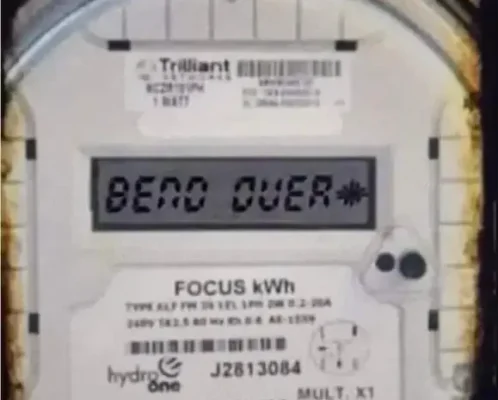Vermont’s unaffordability crisis is most visibly driven by high taxes that come directly out of our pockets: sky-high property taxes, above-average sales taxes, fees on our electric bills, the new payroll tax, etc. A “clean heat” surcharge on fuel bills would be easy to spot. But the mandates our legislators saddle local businesses with – an activity they take on with all the abandon of drunken, dancing elves tossing tinsel onto Christmas trees (‘tis the season!) — are also contributing greatly to why things cost so freakin’ much.
Here’s an example recently shared with me by a local business owner who is hoping/planning to expand, creating local jobs and growing our overall economy (reprinted here with permission), but…
… [W]e’re running into new regulatory requirements as part of the VT Commercial Building Energy Standards of 2024. CBES 2024 came into effect in July of this year, so every developer, architect and engineer is presently scrambling to interpret the new code for their construction projects.
One particularly onerous piece, for some developers at least, is the new parking lot requirements. Specifically, CBES 2024 mandates that 8% of all parking spaces come with an electric vehicle charging station. That sounds reasonable enough. But then it also mandates that another 7% of parking spots be “EV ready”, meaning that a pedestal with a junction box is pre-installed, complete with wiring to the transformer.
In addition, yet another 50% (!) of spots need to be “EV capable”, which means that conduits to these spots need to be in place for future connections (52 in my case).
And here’s the kicker: CBES also mandates that transformers be sized to have the capacity for all this future expansion, including the 50% we’ll never install. Not only does this make the entire setup exponentially more expensive, but it also has the folks at Vermont’s electric utilities scratching their heads, because they now need to guarantee supply they may not even be able to deliver for demand which may never materialize.
I get that property owners need to adapt to the new reality of EVs being part of the automobile mix on our roads. But this is just madness. We’re going to be out $50,000-100,000 to provide power and conduits to charging stations we’ll probably never put in. Moreover, this comes on top of other new requirements, like a solar ready roof and door blower test, which run up expenses too. And in the meantime, demand for EVs is collapsing before our eyes.
The folks designing these schemes may think there’s no end to our budgets, but I can assure you that there is. The only people benefiting from this are those selling the chargers and the engineers tasked with designing it all. We don’t install a gasoline pump at each parking spot; why should I have to provide chargers for each EV that pulls in? It’s preposterous.
Preposterous indeed! This business is a hotel/restaurant/bar. So next time you’re faced with a $24 hamburger on the menu, consider that you’re paying to cover $100K worth of non-working, unwanted electric vehicle infrastructure in the parking lot – not higher wages to the staff, hipper décor in the dining area, or even a tastier, lower calorie/cholesterol, healthier magical beef patty. It’s politicians wasting your money to satisfy their own ideological itches and sociopathic need to force people to do things that make no economic or practical sense. After all, if these measures did make financial or practical sense, the businesses would do them on their own. With pleasure.
These mandates are de facto taxes that ultimately get passed along to customers. That is unless the customers simply go away, which many businesses are finding out that this is what happens when government assumes the senior partner role in your entrepreneurial enterprise, whatever it may be.
And it’s not just businesses that face these kinds of unnecessary, ideologically driven regulatory costs. The “2024 Vermont Commercial Building Energy Standard AMENDMENTS” – these are just the amendments, for God’s sake! – are 206 pages long and also include residential construction and renovation. So, why do we have a housing affordability and shortage crisis in the state? Hmmm.
Of course, we need some regulation of building codes for safety’s sake. We can’t turn a blind eye to potential fire hazards or roofs that will collapse under six inches of snow, and we need to ensure that construction projects clean up after themselves. But for non-public safety issues, such as how many electric vehicle chargers will I need to accommodate my customer base, or what’s the best way to heat my space, or what kind of stoves do my chefs prefer to cook with in our kitchens…. government needs to stay the heck out of it. It’s not your business. Literally.
